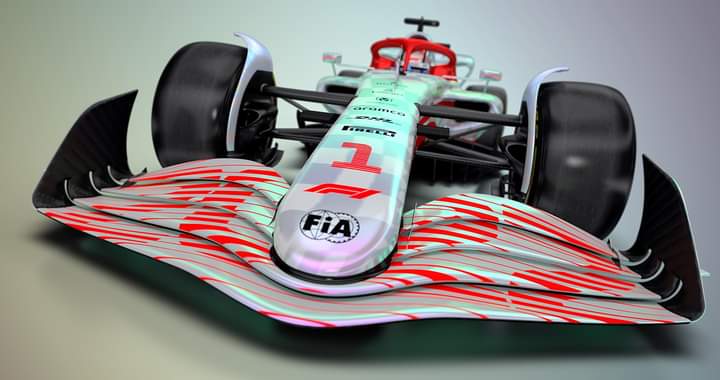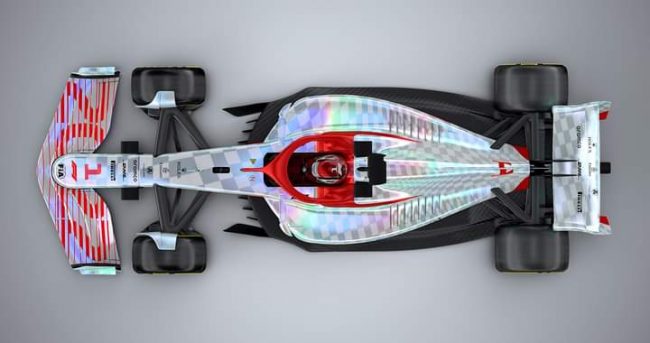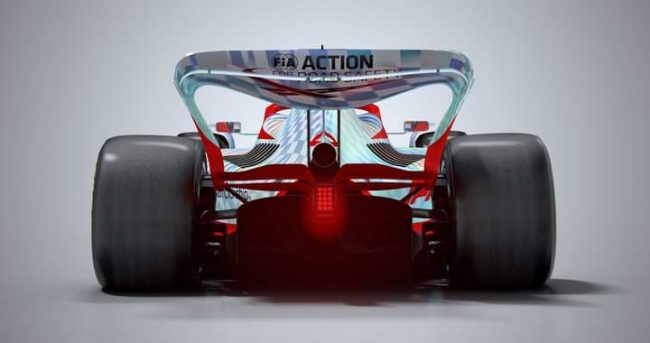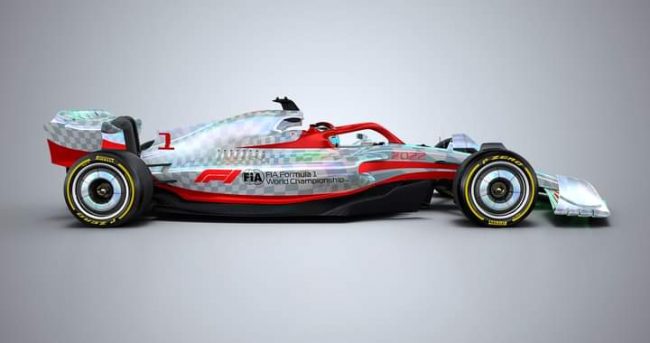
10 things you need to know about the all-new 2022 F1 car
There’s a revolution coming in Formula 1 in 2022 and it’s shaped… well, much like the car you see in the image above. Here are the 10 key things you need to know about the game-changing 2022 car, a full-scale model of which broke cover at the British Grand Prix on Thursday.
1. It’s been designed specifically to promote better racing
The 2022 car, developed by Formula 1’s in-house Motorsports team in collaboration with the FIA, and putting a heavy onus on the aerodynamic phenomenon known as ‘ground effect’ reduces those figures to 4% at 20 metres, rising to just 18% at 10 metres.
2. The car will feature over-wheel winglets for the first time – and wheel covers are back!
The inclusion of the latter is simple: sending airflow through the wheels might be an enormously potent way for teams to increase their downforce, but it also adds to that chaotic aerodynamic wake coming off the cars.
3. The car will feature 18” wheels with low-profile tyres for the first time
The new Pirelli compounds and constructions for these 18” wheels have been designed with the goal of reducing the amount the tyres overheat when they slide – a primary aspect that should help with closer racing.

4. The front wing and nose concept have been completely re-thought
That means not sending the wake dramatically outboard, as is done on the current cars, nor letting it spill under the floor and get ingested by the diffuser, but instead steering it narrowly down the side of the car as much as possible. Or as one engineer on the project put it, the 2022 car’s front wing is designed simply to be an “anti-outwash” front wing.
5. An aero feature from the 70s is back! Full ground effect cars were subsequently outlawed at the end of 1982 – and the 2022 car is certainly not a return to that era (there are no side skirts for a start!). But the 2022 car does feature fully shaped underfloor tunnels, rather than the stepped floor used currently, which will allow teams to generate large amounts of efficient downforce through ground effect (the current floors also exploit ground effect, but not to the same extent).
The reason for the change is the benign quality of downforce generated in ground effect. Current cars’ barge boards and other bits of aerodynamic furniture are designed to send vortices under the floor to increase downforce. But when those vortices stop working – due, for example, to the influence of closely following another car – the performance drop-off is huge.

6. The rear wing features new ‘rolled tips’
While current cars’ rear wings direct airflow upwards, they are also designed to send flow outwards, leaving the ‘dirty air’ sitting there for the following car to drive through. By contrast, the shape and position of the 2022 car’s rear wing creates a rotational airflow that collects the rear wheel wake and rolls it into the flow exiting the diffuser – forming an invisible ‘mushroom’-shaped wake.
This narrower wake is then thrown – thanks also to a steeper diffuser ramp – high up into the air, allowing a following car to drive through less disrupted ‘clean air’.
7. It will use the same power unit as 2021
Formula 1 set to retain the current 1.6-litre turbo-hybrid units. This is no bad thing, given that they’re already the most advanced and most efficient engines on the planet.
There will, however, be some more standard components in the fuel system, as well as some additional sensors to allow the FIA to better monitor the power units.
8. Cars will run on more sustainable fuel
F1 is still working hard to introduce fully sustainable fuel in the near-future, 2022 will see the bio-component ratio rise to 10%. That will be achieved through a move to ‘E10 fuel’ – ‘E’ standing for ethanol, while ‘10’ refers to its percentage in the mixture.
Crucially, though, that ethanol must be a second generation biofuel made in a sustainable way, meaning it will have a near-zero carbon footprint – an “interim step”, in the words of Formula 1’s Chief Technical Officer Pat Symonds, which will also help the sport align with current road car fuel regulations.

9. Safety has been at the forefront of the design
The chassis now need to absorb 48% and 15% more energy respectively in the front and rear impact tests, as well as greater forces in the static ‘squeeze’ tests required to homologate the chassis and certify their strength.
10. The 2022 car has been put through over 7,500 simulations to get to this point
F1’s Motorsports team have run approximately 7,500 simulations, creating around half a petabyte of data. That’s the equivalent of a third of the 10 billion photos on Facebook, or 10 million four-drawer filing cabinets full of text documents.
The 2022 car was also developed in exclusive sessions in Sauber’s wind tunnel in Switzerland, with 138 ‘baseline configurations’ experimented with over two years, with around 100 ‘wind on’ hours. F1’s Motorsports team are confident that they’ve come up with a set of regulations that can achieve their objective of closer racing, while not being so prescriptive that they prevent creativity.

